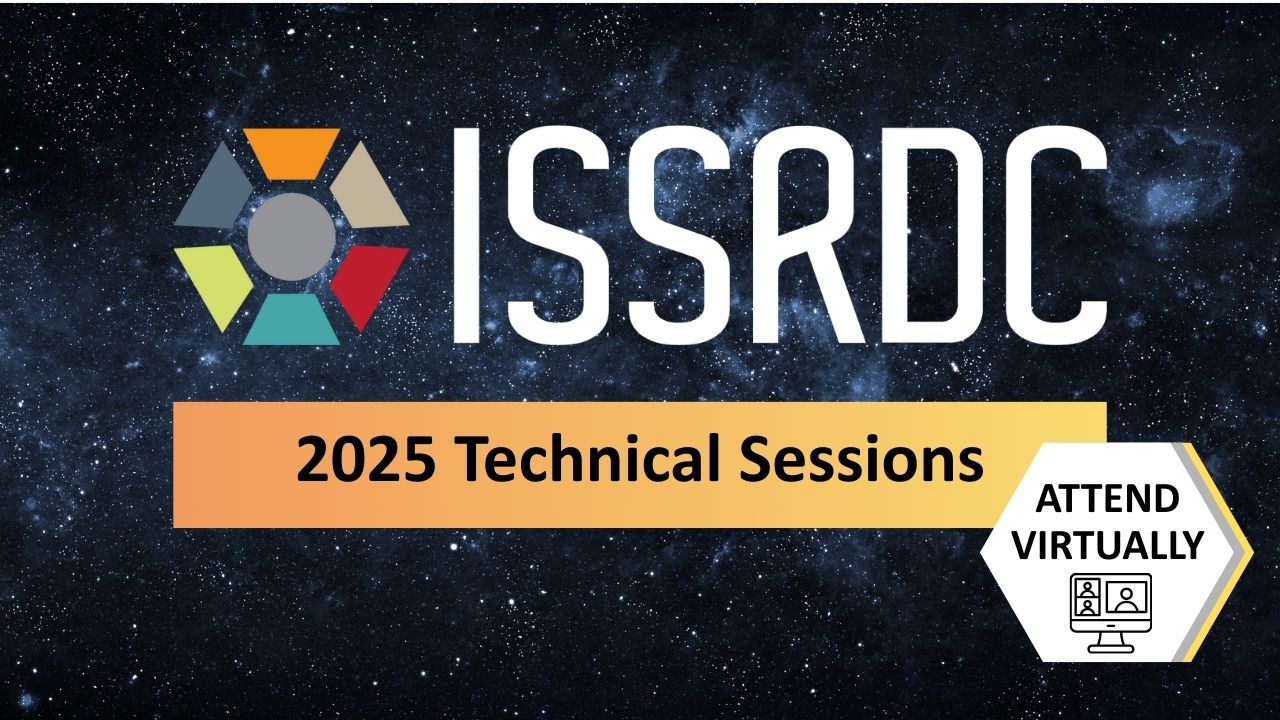ISS National Lab, NASA, and AAS Announce Three Days of Technical Sessions Showcasing Space Station Research

2025 ISSRDC Technical Sessions held virtually—Register now.
ISS National Lab-sponsored investigations seek to accelerate therapeutic innovations, advance computing technologies, and prepare the future workforce
September 10, 2025
KENNEDY SPACE CENTER (FL), September 10, 2025 – The International Space Station (ISSInternational Space Station) National Laboratory, in cooperation with NASANational Aeronautics and Space Administration and the American Astronautical Society (AAS), is proud to announce three days of virtual technical sessions highlighting the breadth and impact of research conducted in low Earth orbit(Abbreviation: LEO) The orbit around the Earth that extends up to an altitude of 2,000 km (1,200 miles) from Earth’s surface. The International Space Station’s orbit is in LEO, at an altitude of approximately 250 miles. (LEO).
These virtual sessions, taking place September 23-25, will allow the public and research community to learn about advancements in space-based R&D, following the decision earlier this year not to support an in-person International Space Station Research and Development Conference(Abbreviation: ISSRDC) The only conference dedicated exclusively to showcasing how the International Space Station is advancing science and technology and enabling a robust and sustainable market in LEO. This annual conference brings together leaders from the commercial sector, U.S. government agencies, and academic communities to foster innovation and discovery onboard the space station. ISSRDC is hosted by the Center for the Advancement of Science in Space, manager of the ISS National Lab; NASA; and the American Astronautical Society. (ISSRDC). The full technical session schedule and instructions on how to register are available on the ISSRDC website.
ISSRDC technical sessions were a critical component of sharing results within the space research community to enable further collaboration and innovation. The momentum behind space-based research remains strong, with a record number of technical session proposals submitted for consideration earlier this year, underscoring the need for a platform to showcase these valuable findings.
More than 60 teams will present during the three days of virtual technical sessions, offering insights into how the space station continues to serve as a platform for fundamental and applied research that benefits life on Earth and expands our capabilities in space. Upon completion of the event, video recordings of each session will be available on the ISSRDC website.
Session topics include:
- Physical Sciences and Materials Development
- Innovative Solutions and Remote Sensing
- Technology Demonstration
- STEM Engagement and Workforce Development
- In-Space Production and Applications
- Commercial and Non-Governmental Use
- Biology and Medicine
- Human Health and Performance
- Fundamental Biology
As the space station approaches 25 years of continuous human presence, these technical sessions showcase the value the orbiting laboratory brings to the scientific community and its role in shaping the LEO economy, strengthening national security, and preparing the space workforce of tomorrow. To date, more than 4,000 research investigations have been conducted on the space station. These investigations are from more than 5,000 researchers in over 110 countries, and findings have led to the publication of more than 4,400 scientific papers, advancing knowledge across a wide range of disciplines.
Again, to learn more about the technical sessions and follow along live, please visit the agenda and registration page.
For more information about ISS National Lab-sponsored science and its impact on Earth, visit our website.
Download a high-resolution image for this release: ISSRDC Technical Sessions
Media Contact:
Patrick O’Neill
904-806-0035
PONeill@ISSNationalLab.org
# # #
About the International Space Station (ISS) National Laboratory: The International Space Station (ISS) is a one-of-a-kind laboratory that enables research and technology development not possible on Earth. As a public service enterprise, the ISS National Laboratory® allows researchers to leverage this multiuser facility to improve quality of life on Earth, mature space-based business models, advance science literacy in the future workforce, and expand a sustainable and scalable market in low Earth orbit. Through this orbiting national laboratory, research resources on the ISS are available to support non-NASA science, technology, and education initiatives from U.S. government agencies, academic institutions, and the private sector. The Center for the Advancement of Science in Space® (CASIS®) manages the ISS National Lab, under Cooperative AgreementA cooperative agreement is Federal assistance that establishes a relationship between the U.S. Government and a recipient in which the principal purpose of the relationship is to accomplish a public purpose of support or stimulation. Since 2011, the Center for the Advancement of Science in Space™ (CASIS™) has managed the National Laboratory® through a Cooperative Agreement with NASA. with NASA, facilitating access to its permanent microgravityThe condition of perceived weightlessness created when an object is in free fall, for example when an object is in orbital motion. Microgravity alters many observable phenomena within the physical and life sciences, allowing scientists to study things in ways not possible on Earth. The International Space Station provides access to a persistent microgravity environment. research environment, a powerful vantage point in low Earth orbit, and the extreme and varied conditions of space. To learn more about the ISS National Lab, visit our website.
As a 501(c)(3) nonprofit organization, CASIS(Abbreviation: CASIS™) The nonprofit organization that manages the ISS National Lab, which receives at least 50 percent of the U.S. research allocation on the International Space Station to facilitate research that benefits humanity (NASA manages the other 50% and focuses on research for space exploration purposes). accepts corporate and individual donations to help advance science in space for the benefit of humanity. For more information, visit our donations page.